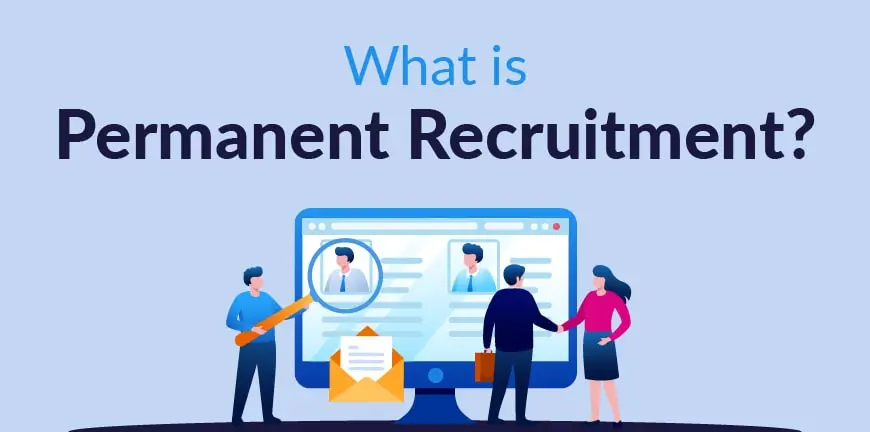
What is Permanent Recruitment? Definition, Advantages, Process, Differences
27/11/2024
International Staffing Meaning, Benefits & Staffing Approaches
27/11/2024The mission of the healthcare sector is to provide patients with the right care and medication while being mindful of the safety of their staff as well. This intersection of artificial intelligence (AI) and healthcare has not just been a promising development but has also acted as a transformative force reshaping the landscape of modern medicine. So, could AI and healthcare really pass as a match made in Heaven? It certainly does look like it. AI has proven to be the perfect match for healthcare, diagnostics, treatment and patient care and more. In this article we’ll be exploring how this synergy will be redefining the future of healthcare.
1. Enhanced diagnostics
This is one of the most significant areas were AI shines in healthcare, diagnostics. Some of the AI powered tools can help analyse X-rays, MRIs, CT scans with utmost precision, aiding early detection of fateful diseases like cancer and neurological disorders. AI models can very swiftly and effectively identify patterns in patient data and can predict issues like heart attacks, strokes etc.
2. Better, enhanced, personalized treatment plans
AI is a huge help in analysing a wide range of medical data related to patients and recommend better treatment options. Additionally, the machine learning models can predict how well or not patients respond to certain medications and modify the same according to their preferences improving outcomes.
3. Swifter drug discovery
AI has the capabilities to process huge amounts of data to identify potential drug candidates in the smallest time possible. It helps reduce the time and cost associated with research, clinical trials, making life saving drugs accessible.
4. Better operational efficiency
The repetitive, tedious tasks like scheduling, billing and documentation that keep the healthcare professionals occupied for long periods can be automated with the help of AI. AI is also instrumental in managing inventory, optimizing resource allocation and reduce wait times enhancing the office’s efficiency.
5. Advancing telemedicine
Holding up customer/patient services especially in the healthcare sector isn’t at all easy even though you may have a dedicated team to answer their queries. AI’s chatbots and virtual health assistants can be lifesavers in this matter. AI-driven wearable devices track vital signs and health metrics, alerting doctors to any anomalies.
6. Enhanced proficiency in medical research
AI has the ability to go through vast clinical data and very easily match patients with the right clinical trials based on their health conditions, accelerating recruitment, increasing the trial rate success. Additionally, AI enables researchers worldwide to share insights and collaborate on tackling complex health issues.
7. Remote monitoring and predictive healthcare
The integration of AI into wearable devices and remote monitoring systems enables continuous tracking of patient health. By analyzing data in real-time, AI algorithms provide predictive insights, identifying potential health concerns before they escalate.
8. Ethical and Inclusive Healthcare
With AI’s ability, all the human biases involved in decision making, promoting better healthcare delivery can be completely eliminated. Also, AI’s modern solutions can make healthcare all the more accessible to remote areas.
Challenges and Considerations
While AI and healthcare indeed go hand in hand, it’s not without its challenges. Data privacy and security concerns are paramount, as healthcare data is highly sensitive. Also, its essential to address regulatory compliance and ethical considerations to ensure the responsible use of AI in healthcare.
Examples of AI Technologies that are Revolutionizing Healthcare
The cutting-edge technologies introduced by AI can help improve accuracy, accessibility and efficiency while enabling better approaches to patient care and medical research. Some of the applications and examples of AI technology that have transformed healthcare are-
Machine learning applications
can identify disease risks and create personalized treatment plans.
Example- Google’s Deep mind that identifies eye diseases and detect breast cancer a lot more accurately than humans.
Computer vision applications
can analyse images like X-rays, MRIs, CT scans and improve patient monitoring, assist robotic surgeries etc.
Example- Zebra Medical Vision uses AI to interpret imaging data for early disease detection.
Predictive analytics applications
Help optimize hospital resource allocation, forecast disease outbreaks and identify patients at high risk of readmission
Example- Health Catalyst uses AI to predict patient outcomes and improve care pathways.
Generative AI applications
Can help with accelerating drug discoveries, develop easier educational materials for patients and even gather medical data with utmost confidentiality
Example- OpenAI’s GPT are used to draft reports, educate patients, and support clinical decision-making.
Robotics and automation applications
Can help doctors perform minimally invasive procedures with great precision, automate medication dispensing and lab sample processing
Example- da Vinci Surgical System uses AI to guide robotic-assisted surgeries.
Wearables technology and IoT integration
Can help with patient health monitoring with devices like fitness trackers, detect irregular heart rhythms, sends alerts to healthcare providers etc
Example- Apple Watch and Fitbit use AI to analyze health metrics and detect abnormalities like atrial fibrillation.
AI driven gene therapies
Can analyse DNA to figure out genetic differences to diseases, tailor the therapies depending on individual genetic profiles etc.
Example- Deep Genomics focus on understanding genetic data to design precision treatments.
Wrapping Up
The partnership between AI and healthcare holds transformative potential, offering solutions to longstanding challenges while opening doors to unprecedented opportunities. With continued innovation and ethical application, this “match made in heaven” promises to redefine how care is delivered and experienced worldwide.
Contact Us For Business Enquiry

Rajkumar Shanmugam
Rajkumar Shanmugam is the Head of HR at ALP Consulting, bringing over 19 years of comprehensive HR leadership experience across India and international markets. His expertise spans talent acquisition, employee relations, performance management, compliance, and HR transformation. Rajkumar has a proven track record of driving people-centric initiatives, enhancing workplace culture, and aligning HR strategy with business goals. With extensive experience in US staffing operations and global mobility, he continues to lead organizational excellence through innovation and employee engagement.




